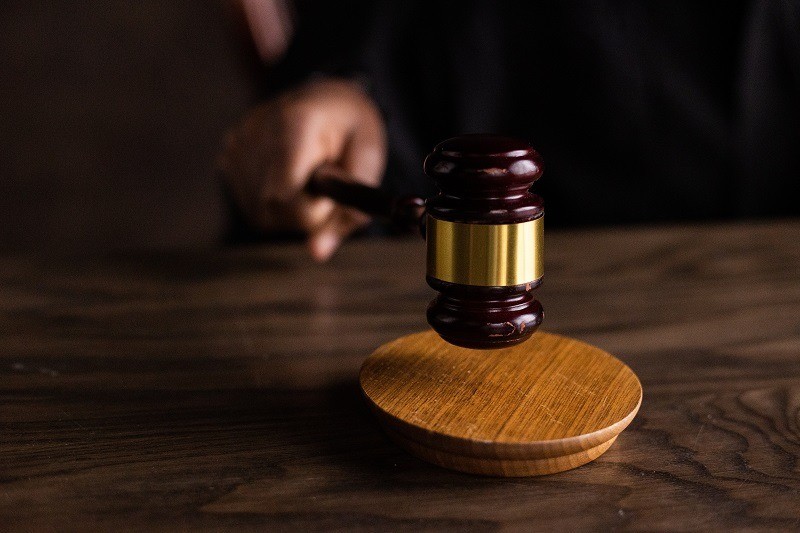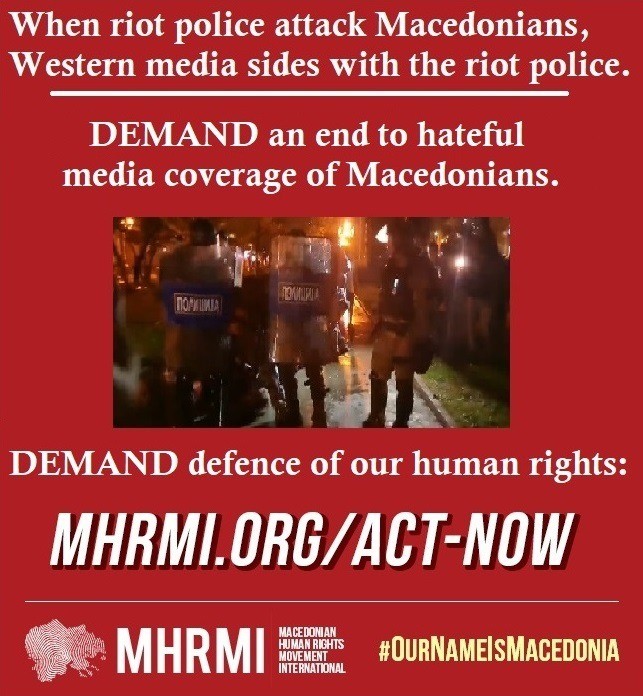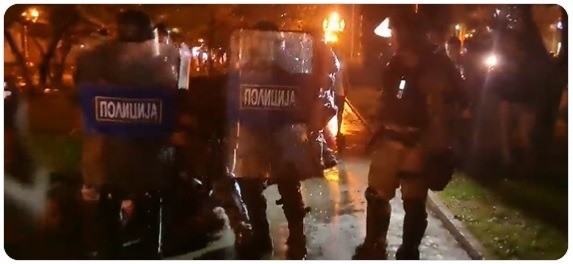News & Updates

Macedonian Association "Ilinden" - Tirana Marks Eight Years as a Full Member of the Federal Union of European Nationalities
Eight years ago, the Macedonian Association "Ilinden" - Tirana was admitted into the Federal Union of European Nationalities (FUEN), the largest minority organization in Europe. The Macedonian Association "Ilinden" - Tirana would like to extend its sincere gratitude to all the members of the Federal Union of European Nationalities (FUEN) for their cooperation and understanding of the interests of the Macedonian minority in Albania.

Report
The Rise in Human Rights Violations Against Macedonians in Bulgaria - Annual Report
Bulgaria's official state policy continues to be the outright denial of the existence of the Macedonian minority, as well as of Macedonian identity, language, culture and history. It is this denial, along with the EU's full endorsement of Bulgaria's anti-Macedonian campaigns, that has led to a dramatic rise in hatred and human rights violations against Macedonians in Bulgaria.

Press Release
Appeal for Support from Macedonians in Pirin Macedonia
Watch the video statement from Stojko Stojkov, co-president of OMO Ilinden PIRIN, in which he calls for Macedonians worldwide to unite in defence of Macedonians, suffering under increased Bulgarian efforts to eradicate Macedonians' ethnic identity and human rights.
To contribute, contact Macedonian Human Rights Movement International at mhrmi.org/donations, Ico Najdovski at facebook.com/ico.najdovskiperin, or OMO Ilinden PIRIN at facebook.com/OMOIlindenPirin1998

Press Release
MHRMI Meets With Global Affairs Canada, Calls on Canada to Seek Immediate Release of Macedonian Political Prisoners
Macedonian Human Rights Movement International President, Bill Nicholov, met with the Director General of European and Eurasian Affairs for Global Affairs Canada, Andrew Turner, and Deputy Directors of European and Eurasian Affairs, Louise Corbin and Robert Coleman, and called for Canada to seek the immediate release of Macedonian political prisoners, imprisoned for dissenting against the regime and opposing the forced name change into the highly derogatory "North Macedonia".
Nicholov pointed out Canada's long-standing history in condemning regimes worldwide and defending human rights activists and political prisoners. Nicholov called for equal treatment for Macedonians.

Op-ed
Selective Outrage Enables Murder
We cannot allow countries to be invaded, the killing of innocent civilians, coups of democratically elected governments, and vicious attacks on people’s most basic of human rights — all in the name of a sadistic foreign leader who only cares about his country’s dominance (or revival of dominance) on the world stage.
We cannot allow him to spin the narrative and blatantly lie about something that is so (literally) painfully obvious. Referring to an avoidable tragedy by any other name does not change his culpability in inflicting mounting human suffering.

Press Release
MHRMI Supports Legal Defence of the Centre for the Macedonian Language in Greece
Since the registration of the Centre for the Macedonian Language in Greece, based in Lerin, numerous lawsuits have been filed in an attempt to rescind its registration.
To date, nine lawsuits have been launched from various organizations, political parties and most notably, the public prosecutor of Lerin. These actions are in-line with prevalent anti-Macedonian views and Greece's suppression of Macedonian rights.
The Centre for the Macedonian Language in Greece offers free online lessons to students of all ages who seek to improve or learn their mother tongue of Macedonian, after generations of Greece's notorious suppression of it.

Press Release
European Free Alliance Calls for Dignity and Human Rights for Macedonian Political Prisoners
Macedonian Human Rights Movement International President Bill Nicholov met with European Free Alliance President Lorena Lopez de Lacalle and Political and Public Affairs Advisor Paul Butcher on January 26, 2023 to discuss grave issues facing Macedonians, including the abhorrent conditions that political prisoners are enduring in the Republic of Macedonia — stemming from their dissent against the forced and highly derogatory name change into "North Macedonia" — and the subsequent increase of violence, threats, and denial of basic human rights throughout the Balkans, also resulting from the forced name, identity and history change imposed on Macedonians.

Press Release
MHRMI President Bill Nicholov, MHRMI File Lawsuits Against Foreign Minister of Macedonia Regime, Media Outlet
On January 27, 2023, Macedonian Human Rights Movement International (MHRMI) President, Bill Nicholov, and MHRMI as an organization, filed lawsuits for insult and defamation in Basic Civil Court Skopje, Macedonia against Bujar Osmani, foreign minister of the Macedonia regime and 360 Degrees, a media outlet in Macedonia.
Osmani and 360 Degrees are highly critical of those who dissent against the regime and U.S. anti-Macedonian policies and crackdown on human rights and civil liberties. The lawsuits are for violations of the Law on Civil Liability for Insult and Defamation.

Press Release
ACTION ALERT: Demand an end to hateful Western media coverage of Macedonians
ACTION ALERT: Visit https://mhrmi.org/act/perpetuates to instantly send the following email to Western media outlets and demand an end to their hateful coverage of Macedonians:

Op-ed
Western Media Coverage of Macedonia Perpetuates Hate
A drunk driver runs a red light and slams into a crowd of pedestrians, gravely injuring several. If this happened in Macedonia, the headline in Western media would be: "Pedestrians Cause Car Accident, Major Damage to Vehicle".
Imagine that every headline and news story about your ethnic group is rife with misinformation and designed to eradicate the existence of your ethnic identity.
